YouthAlert! (YA!) "Youth Peace" Program/Youth Violence
Prevention Education
Program Evidence
"Survive & Thrive" Education and Skills Training for Youth. School-Based Universal Violence Prevention Model Practice & Curriculum
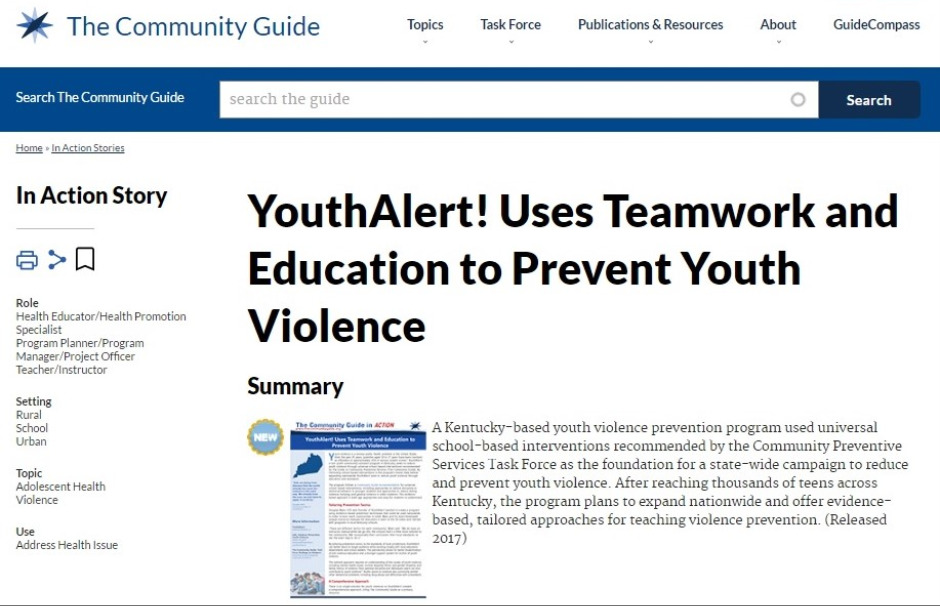
U.S. Centers for Disease Control and Prevention (CDC) Community Guide, Published March 2017
"The program follows a Community Guide recommendation for universal school-based interventions, including approaches to reduce disruptive or antisocial behavior in younger students and approaches to reduce dating violence, bullying, and general violence in older students. This evidence-based approach is both age appropriate and easy for students to understand."
"This tailored approach requires an understanding of the causes of youth violence, including mental health issues, income disparity, ethnic and gender disparity, and family history of violence. Poor parental discipline and delinquent peers can also contribute to youth violence. Youths prone to violence also commonly exhibit other behavioral problems, including drug abuse and difficulties with schoolwork." Download File
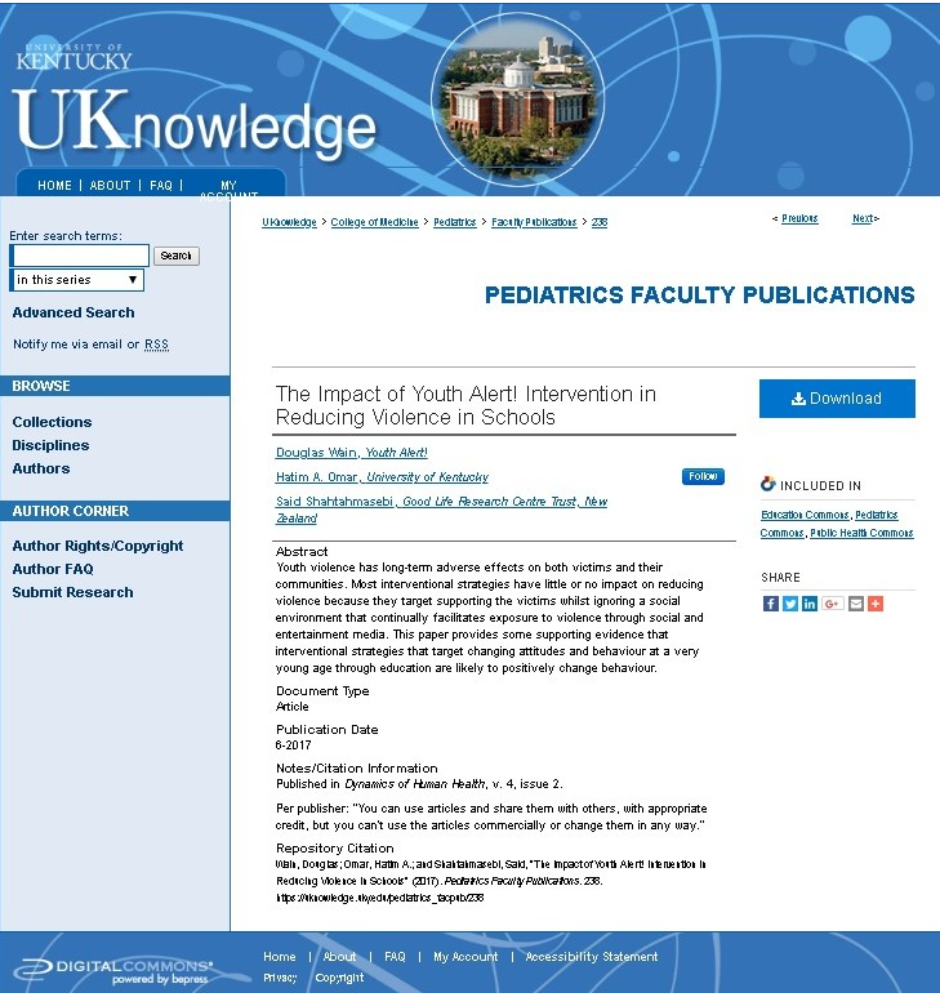
Dynamics of Human Health Journal Article, ISSN 2382-1019, Published June 10, 2017
“Program provides some evidence to support that in-class violence prevention education at schools help change attitudes and perceptions. The programme also provide evidence that this change in attitudes are sustained even some months after the programme which lead to change in behaviour.”
Authors: Hatim A. Omar, University of Kentucky, Said Shahtahmasebi, Good Life Research Centre Trust, New Zealand Download File
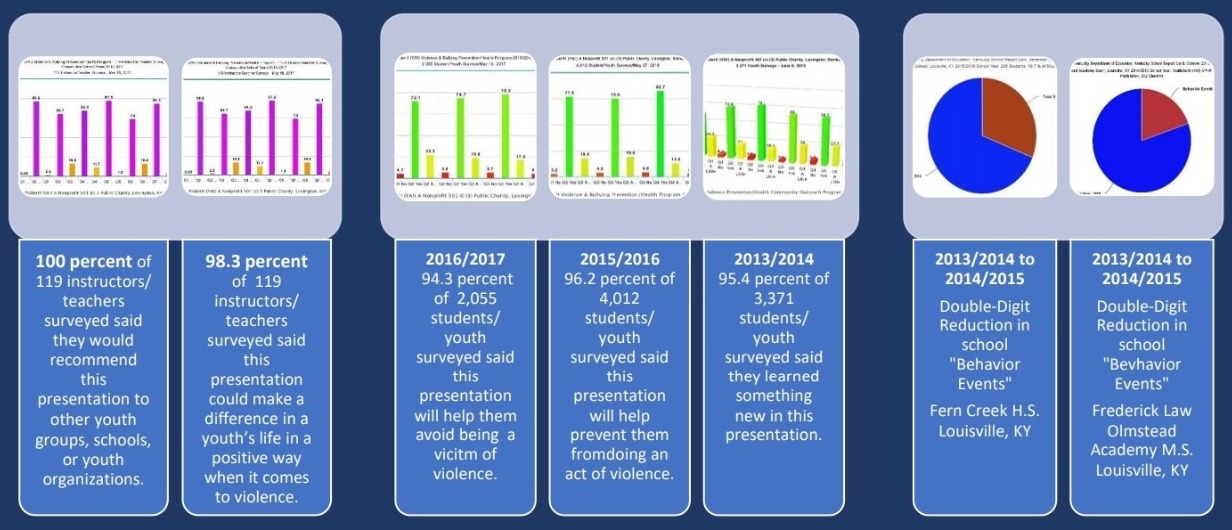
Instructor and Student YA! Program Surveys 2013-2017
100 Percent of 119 instructors/teachers surveyed said they would recommend this presentation to
other youth groups, schools, or youth organizations.
96.2 Percent of 4,012 students/youth surveyed said this presentation will help prevent them from doing an act of violence.(2015-2016).
Double Digit Reduction in school "Behavior Events" Fern Creek H.S. Louisville, KY (2013-2014).
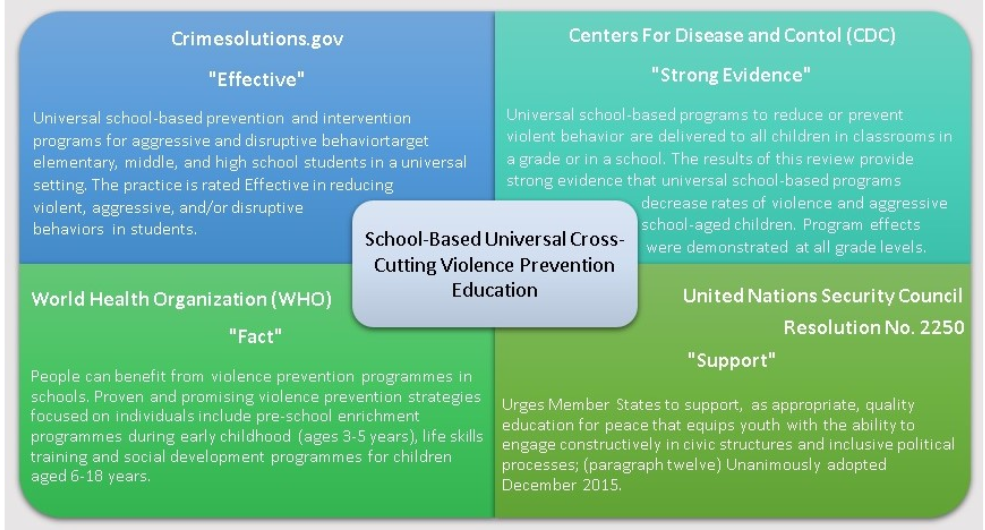
School-Based Universal Cross-Cutting Violence Prevention Education is a Model Practice
"Fact" "People can benefit from violence prevention programmes in schools. Proven and promising violence prevention strategies focused on individuals include pre-school enrichment drying early childhood (ages 3-5 years), life skills training and social development programme for children aged 6-18 years." (World Health Organization, WHO, 2019) Download File WHO Facts
"Effective" "Universal school-based prevention and intervention programs for aggressive and disruptive behavior target elementary, middle, and high school students in a universal setting. The practice is rated Effective in reducing "violent, aggressive, and/or disruptive behaviors in students." (Crimesolutions.gov, July 2018) Download File
"Effective" "A systematic review of 53 studies found that universal school-based violence prevention programs were associated with reductions in violent behavior at all grade levels. The review also found that the programs appeared to be effective in reducing violent behavior among students in all school environments, regardless of socioeconomic status, race and ethnicity, or crime rate. The evidence also shows that specific programs have been associated with reductions in delinquency and alcohol and substance abuse, and improvements in academic performance." (CDC, 2021) Download File
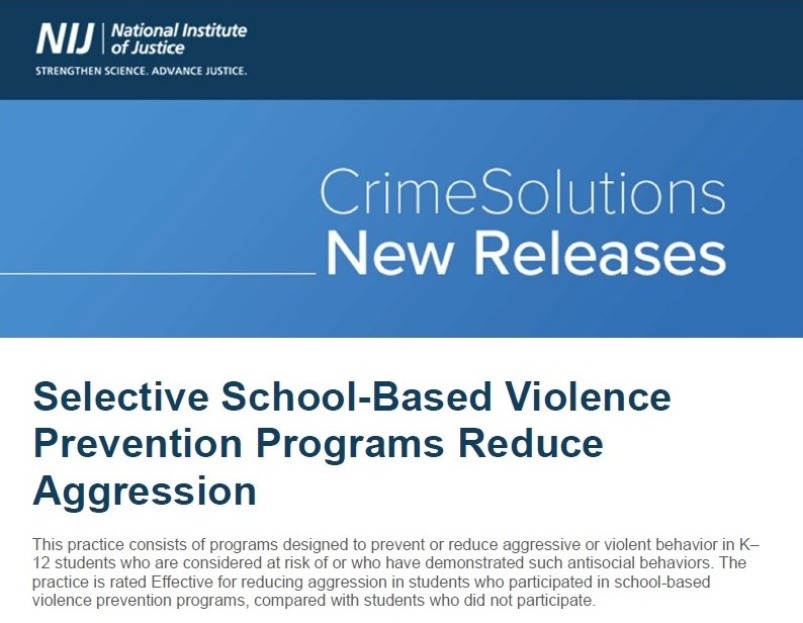
Practice Profile - Effective Rating for Selective School-Based Violence Prevention Programs, Published February 2, 2021
The U.S. Dept. of Justice (USDOJ), National Institute of Justice (NIJ), has established that Selective School-Based Violence Prevention Programs, like our YouthAlert! (YA!) "Youth Peace" Program is effective to "Reduce Aggression."
"This practice consists of programs designed to prevent or reduce aggressive or violent behavior in K–12 students who are considered at risk of or who have demonstrated such antisocial behaviors. The practice is rated Effective for reducing aggression in students who participated in school-based violence prevention programs, compared with students who did not participate." Download File
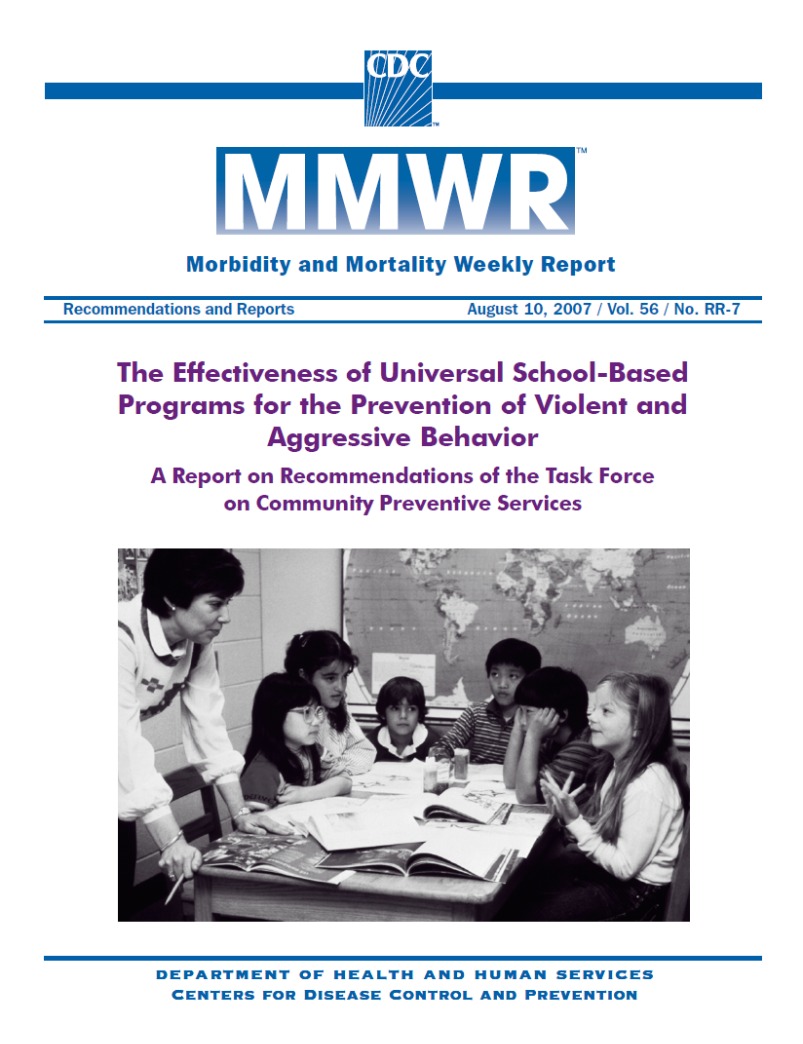
The Effectiveness of Universal School-Based Program for the Prevention of Violent and Aggressive Behavior, Published August 10, 2007
The Centers for Disease Control (CDC) Morbidity and Mortality Weekly Report (WWMR). A report on the Recomdationof the Task Force on Community Preventative Services.
"Strong Evidence" Centers for Disease Control (CDC) "Universal school-based programs to reduce or prevent violent behavior are delivered to all children in classrooms in a grade or in a school. The results of this review provide strong evidence that universal school-based programs decrease rates of violence and aggressive school-aged children. Program effects were demonstrated at all grade levels." Download File
Subscribe for Updates







